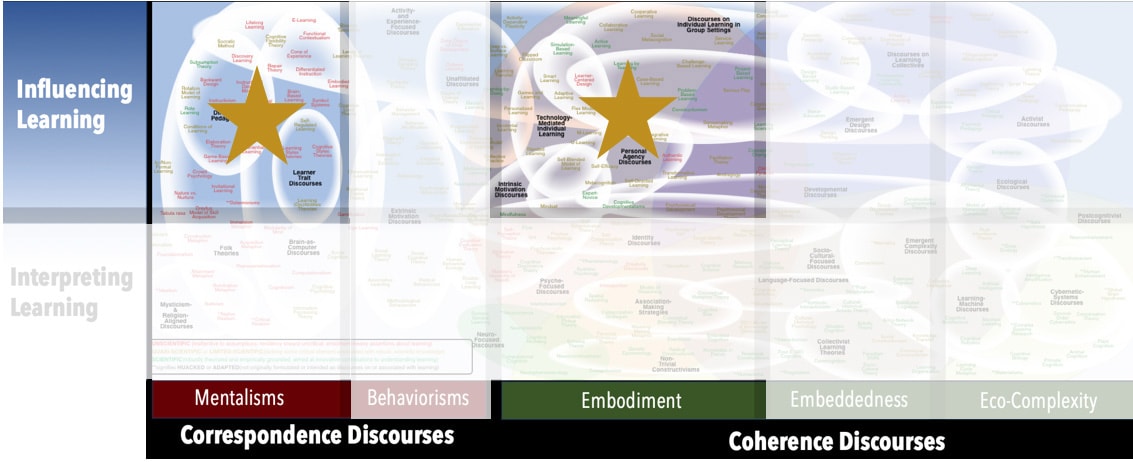Focus
Reversing in-class instruction and out-of-class practicePrincipal Metaphors
Flipped Classroom is not explicit about or aligned with any theory of learning – and, consequently, direct references to learning are most often suggestive of Folk Theories:- Knowledge is … established, externalized facts and skills
- Knowing is … mastered material
- Learner is … an accumulator (individual)
- Learning is … acquiring
- Teaching is … supporting, facilitating
Originated
2000sSynopsis
A Flipped Classroom is a type of Blended Learning that inverts the traditional structure of in-class instruction and out-of-class practice. In a Flipped Classroom, online lectures (possibly supplemented with online discussions and/or research) are accessed at home, and classroom time is devoted to activities to support understanding (e.g., individual tutoring, collaborative inquiries, peer reviewing, group discussions). Associated discourses include:- Flipped Mastery Learning (Jon Bergmann, Aaron Sams; 2010s) – Developed prior to the popularity of the Flipped Classroom, the Flipped Mastery Learning incorporates principles of Mastery Learning and Personalized Learning by providing a comprehensive course (typically online) for students to work through at their own pace.
Commentary
The most common concerns regarding a Flipped Classroom revolve around matters of potential inequalities that can arise or be amplified by differences in access to computers or other necessary technologies. Closely related, some commentators suggest that the method may add to issues related to some adolescents’ already-excessive time spent online and/or in front of a computer screen.Authors and/or Prominent Influences
Salman KhanStatus as a Theory of Learning
Flipped Classroom is not a theory of learning.Status as a Theory of Teaching
Flipped Classroom is a perspective on teaching that offloads standardized and repetitive elements (e.g., lectures), thus affording greater opportunities to develop relationships with students and to attend to their unique qualities and interests.Status as a Scientific Theory
There is a steadily growing body of empirical research around Flipped Classroom, focusing almost entirely at the secondary level. Proponents assert there is evidence that learners engage more enthusiastically, progress more quickly, and develop better mastery. However, its advocates do not appear to be at all attentive to the metaphors and other theoretical commitments that drive the discourse. As such, it has not yet met all our criteria of a scientific theory.Subdiscourses:
- Flipped Mastery Learning
Map Location

Please cite this article as:
Davis, B., & Francis, K. (2020). “Flipped Classroom” in Discourses on Learning in Education. https://learningdiscourses.com.
⇦ Back to Map
⇦ Back to List
